EU Project Pravo-Justice Supported a Meeting on the Rule of Law Roadmap Implementation
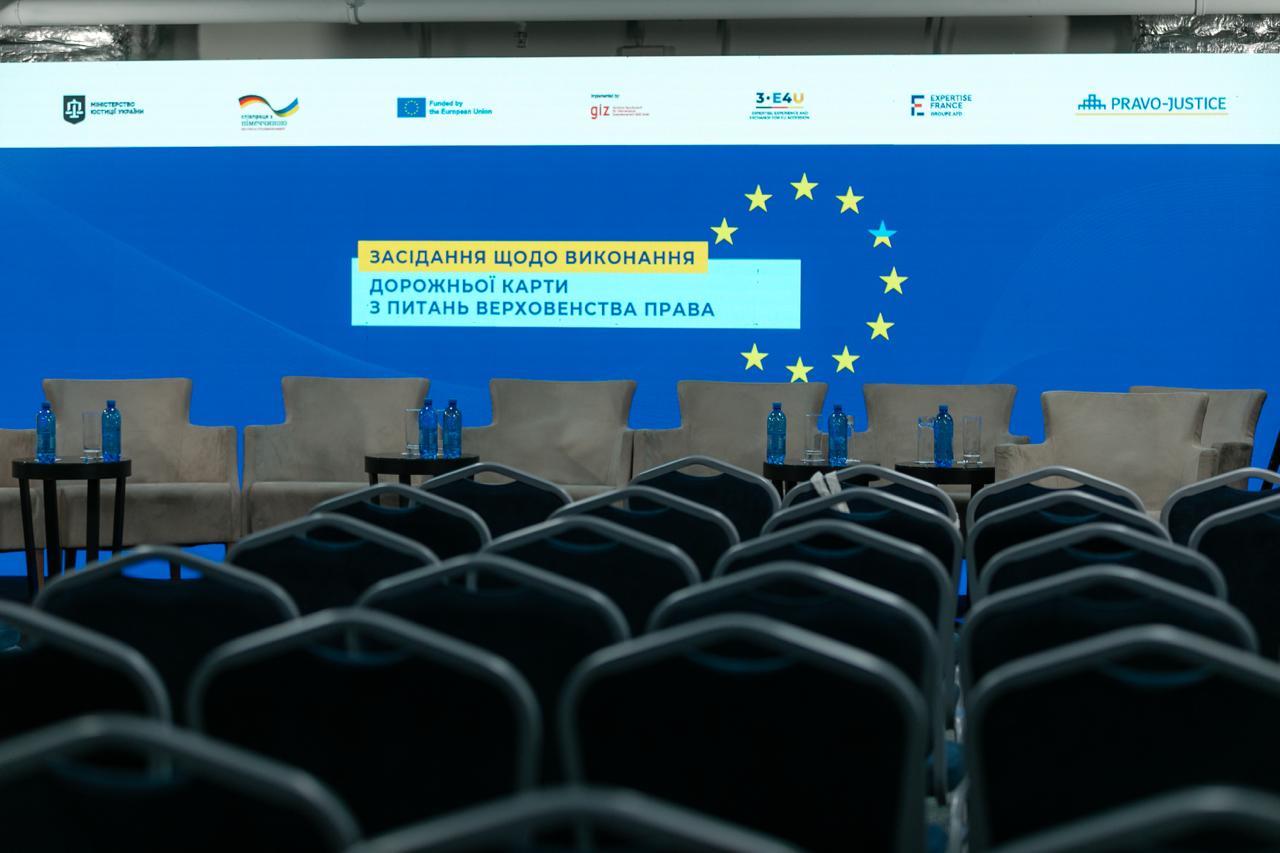
On 24 September, with the support of EU Project Pravo-Justice and Strengthening Ukraine's EU Accession in the Rule of Law and on the initiative of the Ministry of Justice of Ukraine, a meeting was held on the Rule of Law Roadmap implementation. The event was attended by representatives of the government, central executive authorities, the judiciary, civil society organisations, Ukraine's partner countries, and international technical assistance projects.
The participants discussed the mechanism for coordinating the implementation of the Rule of Law Roadmap, as well as the priority areas to be supported in the near future. Particular attention was paid to the results of the implementation of the Roadmap measures in 2025.
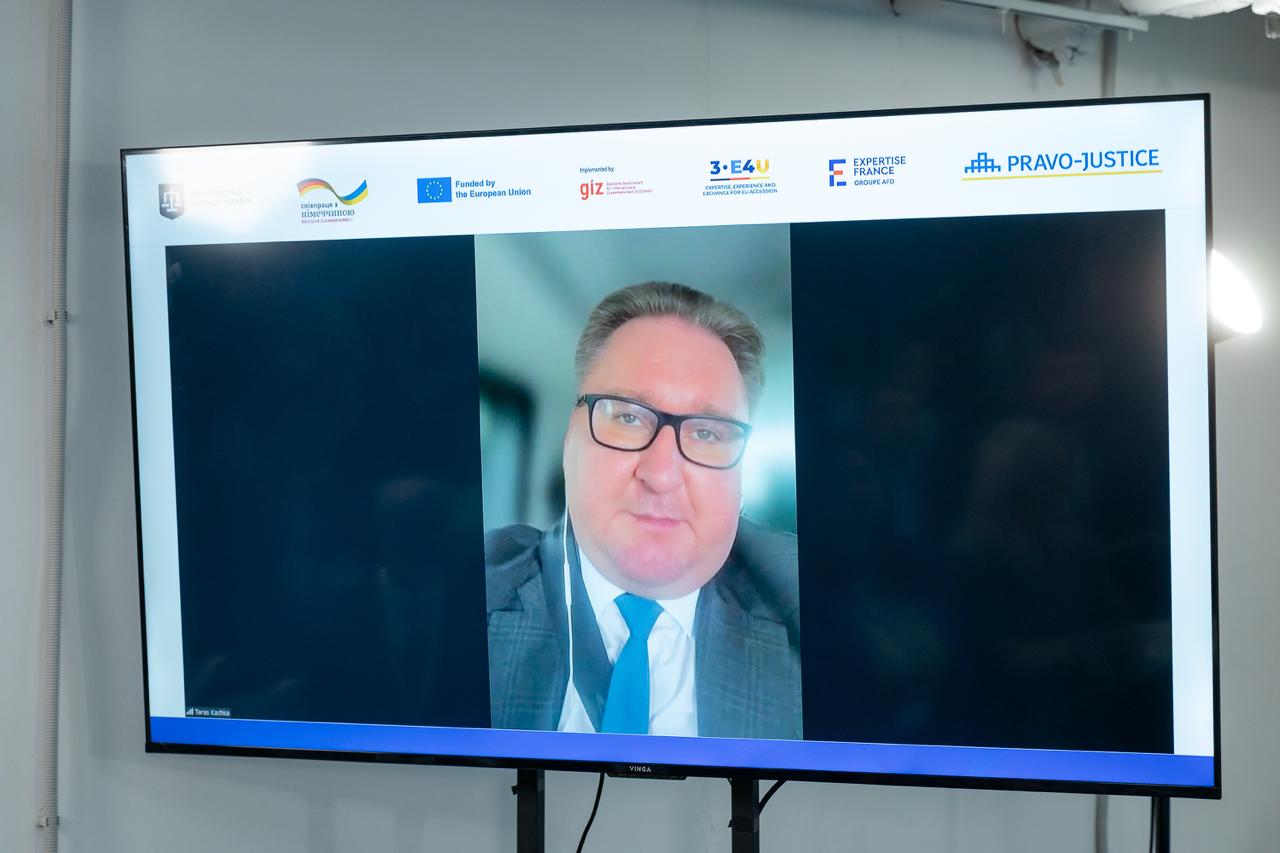
Taras Kachka, Vice Prime Minister for European and Euro-Atlantic Integration of Ukraine, stressed that the Rule of Law Roadmap was not only a list of necessary steps for EU accession, but also a key to Ukraine’s economic growth. According to him, Ukraine, in cooperation with European institutions and member states, is now actively working to actually start negotiations with the EU within Cluster 1 and maintain the pace of negotiations.
“The rule of law is not only about fighting corruption or reforming law enforcement agencies, but also about creating conditions where state involvement in business and citizens’ lives is clear and takes place exclusively in accordance with procedures. This builds trust in institutions and strengthens the authority of the State,” said the Deputy Prime Minister.
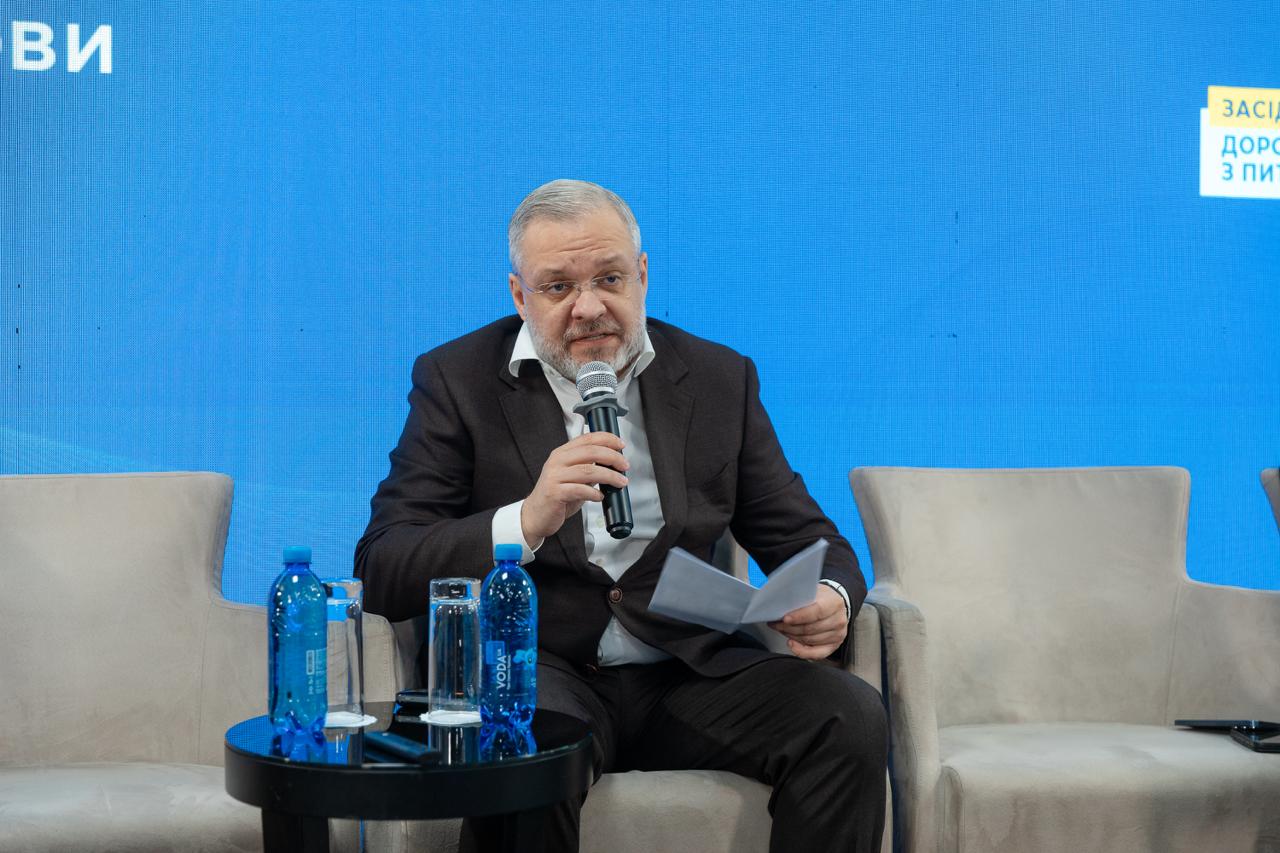
Herman Halushchenko, Minister of Justice of Ukraine, emphasised the key role of joint efforts of stakeholders in implementing the Rule of Law Roadmap.
“European integration is the only course for Ukraine. This path requires not only political will, but also consistent reforms, especially in the area of the rule of law. The Roadmap has become a strategic plan that combines reforms of the justice and law enforcement systems, the fight against corruption and the protection of human rights. To achieve results in a timely and high-quality manner, we need good coordination between agencies, active interaction with civil society, and effective monitoring,” said Herman Halushchenko.
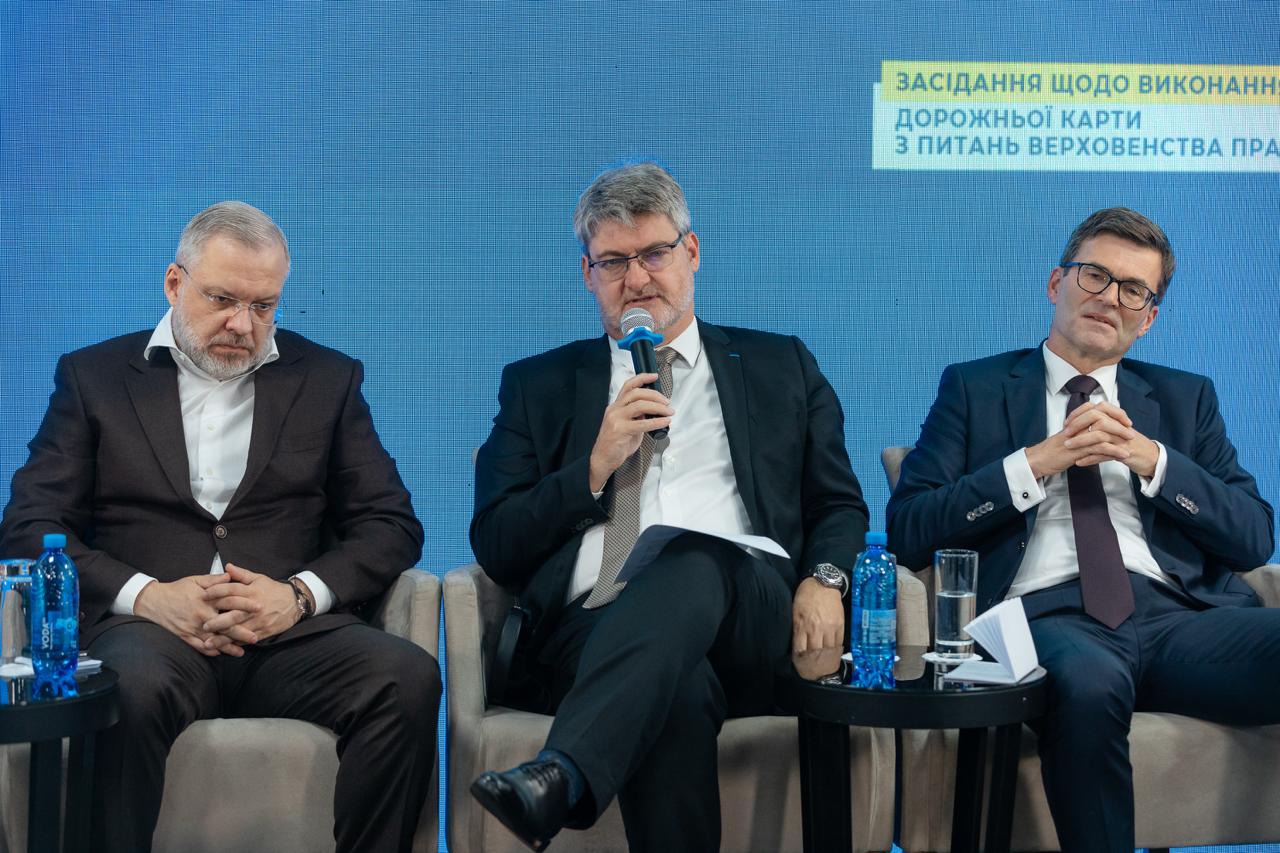
Gael Veyssiere, Ambassador Extraordinary and Plenipotentiary of France to Ukraine, said that strengthening the rule of law was a prerequisite in the fight against corruption and on Ukraine’s path to EU accession. He welcomed the Rule of Law Roadmap and the introduction of a mechanism to coordinate its implementation as significant achievements on the country’s European path.
“The Roadmap is of key importance not only for the European integration process, which we certainly support, but also for Ukraine itself, as it allows us to identify the highest priority areas and those that need to be improved. The European Union will continue to support Ukraine and facilitate coordination of efforts for the effective implementation of the envisaged measures,” said the Ambassador.
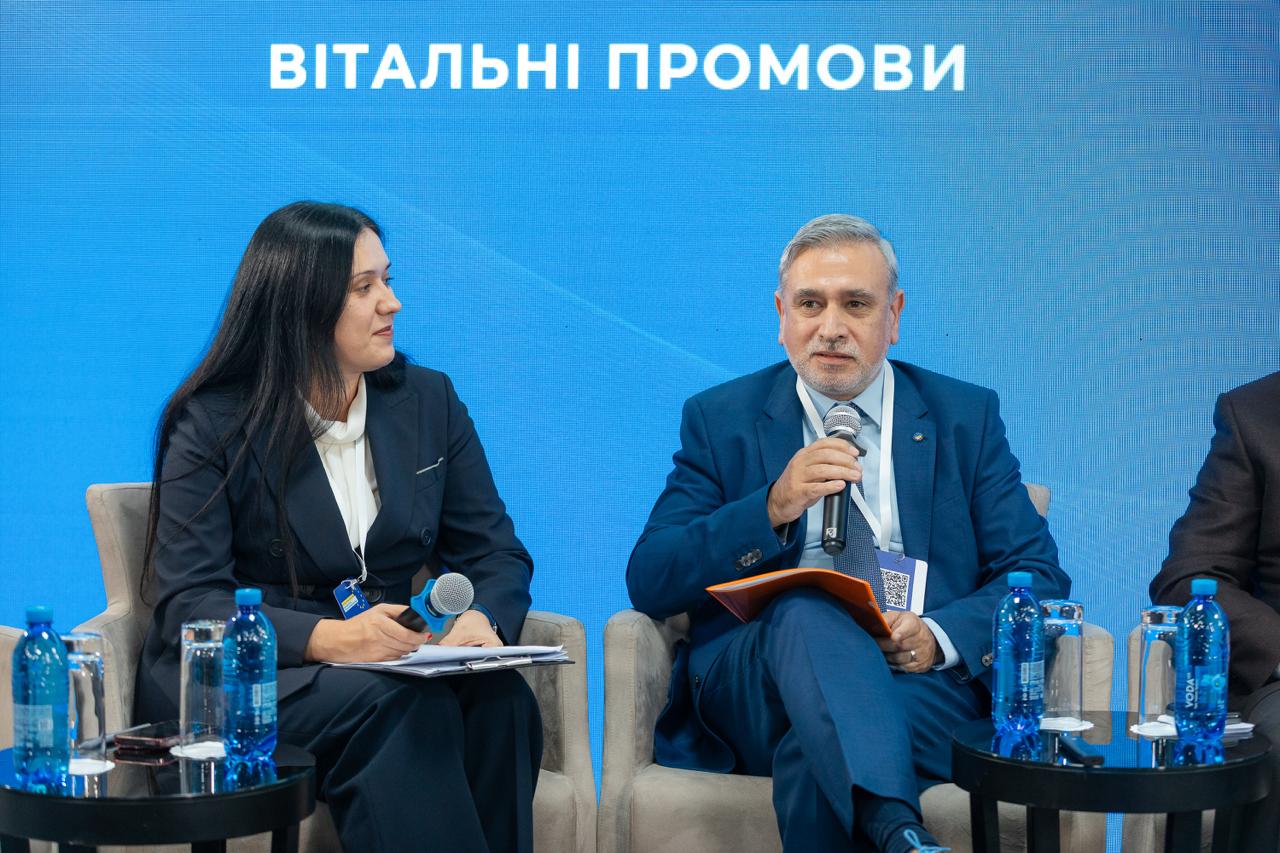
In his turn, Asier Santillan Luzuriaga, Head of Section on European Integration, Governance and Rule of Law, Civil Society at the EU Delegation to Ukraine, mentioned Ukraine's significant progress in fulfilling its commitments within the framework of European integration, in particular in the implementation of the Rule of Law Roadmap. He emphasised the importance of an inclusive approach that would bring together both state institutions and civil society, and stressed the need for further coordinated work by all stakeholders.
“The Roadmap is a national document that has been developed in close cooperation with civil society, independent institutions and international partners. At the same time, we must remember that reforms in the field of the rule of law are a ‘living’ process that requires constant monitoring, filling and improvement. Coordination of donor and technical assistance is also crucial - resources are limited, so all projects need to work in sync. The European Union will continue to support Ukraine in implementing the Roadmap, in particular through its flagship project Pravo-Justice and other initiatives,” he said.
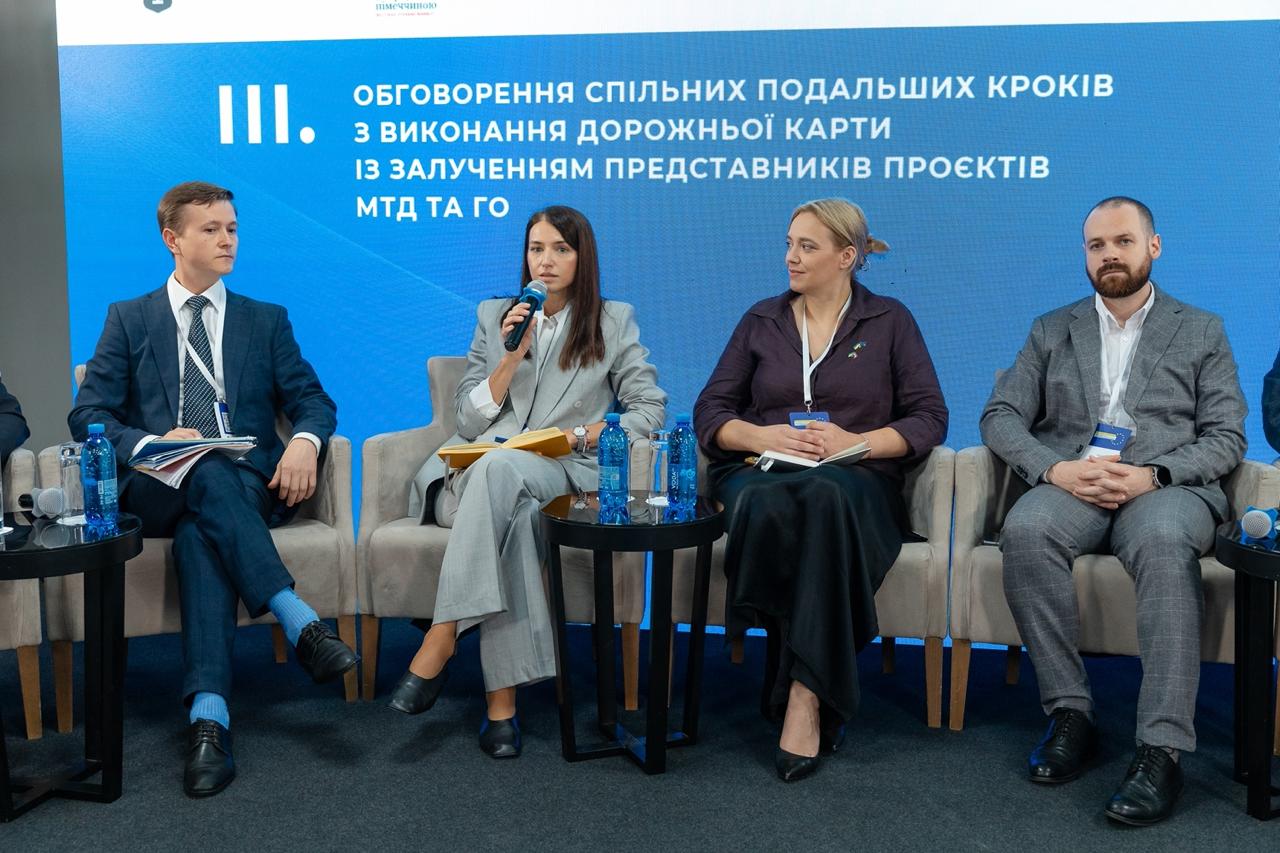
Oksana Tsymbrivska, Team Leader of EU Project Pravo-Justice, emphasised the important role of international technical assistance in the implementation of the Roadmap and stressed that Ukrainian authorities should remain the driving force behind its implementation.
"The key to the successful implementation of the Roadmap consists in effective coordination between all stakeholders, inclusiveness, which involves the participation of state bodies, civil society, and professional community, as well as external support provided by international technical assistance projects. As international partners, we can strengthen and support these processes, but it is the Ukrainian authorities that must remain the driving force behind the reforms,” she said.
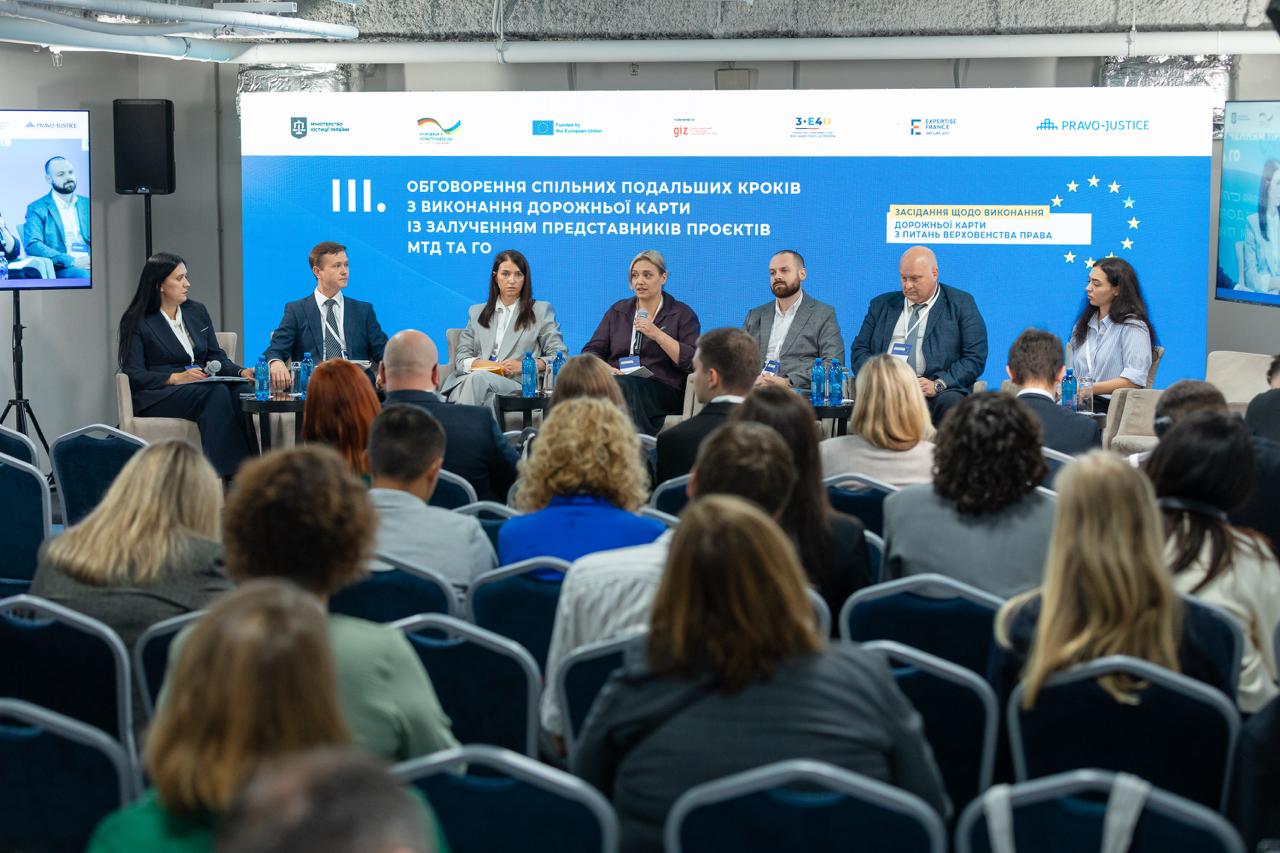
Maja Cvitan Grubisin, Support to EU Integration Process in the Justice Sector Component Lead at EU Project Pravo-Justice, said that the implementation of the Rule of Law Roadmap was not just a technical task, but a strategic tool that defined the priorities of Ukraine’s European integration advancement. That is why it is important to pay attention to coordination between state institutions, clear allocation of responsibilities, and donor support in implementing reforms.
“The Roadmap is not a document for ticking boxes opposite to the completed tasks, but rather a guideline that defines strategic goals. Ukraine has already proved that it is capable of taking on commitments and fulfilling them in the process of European integration. Today, it is important to move forward by consolidating processes, clearly dividing responsibilities, and establishing interagency coordination. Donors also need to coordinate their efforts to ensure that no aspect of the Roadmap is overlooked,” said Maja Cvitan Grubisin.
As part of the event, Nataliia Panchuk, Director General of the Directorate for Strategic Planning and European Integration of the Ministry of Justice, presented the Roadmap Coordination and Monitoring Mechanism. It provides for the coordinated work of interagency, working and expert groups in various areas of the rule of law, which bring together government agencies, parliament, civil society, and international technical assistance projects. The mechanism aims to regularly monitor the implementation of measures, record progress, and prepare analytical materials and reports for the European Commission.
“This will facilitate a clear division of functions and responsibilities, constant monitoring of the implementation of measures, as well as timely identification of problematic issues and prompt response to challenges,” said Nataliia Panchuk.